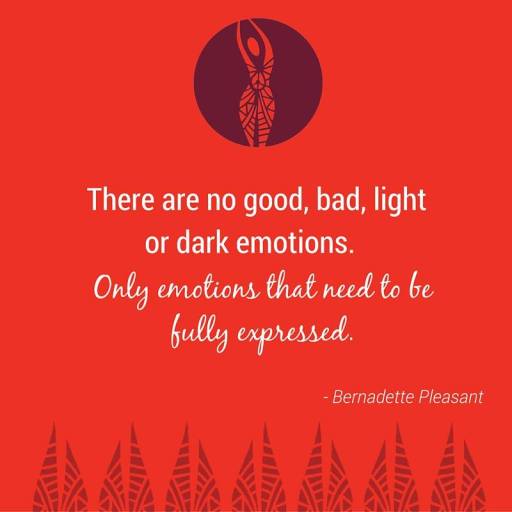In the past month, I’ve received three different emails that ended with the phrase, “no hard feelings.” Each time that I’ve read it in an email, I’m baffled at its inclusion, as it seems entirely irrelevant to the business discussion at hand. Upon further thought, I now consider, “No Hard Feelings” to be an “Emotional Rhetorical Fallacy.”
Rhetorical fallacies, or fallacies of argument, doesn’t allow for the open, two-way exchange of ideas upon which meaningful conversations depend. Instead, they distract with various appeals instead of using sound reasoning. They can be divided into three categories:
- Emotional fallacies unfairly appeal to the emotions and (often irrational) feelings in order to override or circumvent logical judgment.
- Ethical fallacies unreasonably advance the person’s own authority or character.
- Logical fallacies depend upon faulty logic
What are some examples of EMOTIONAL FALLACIES?
- Sentimental Appeals use emotion to distract from the facts.
- Red Herrings use misleading or unrelated evidence to support a conclusion.
- Scare Tactics try to frighten people into agreeing with the arguer by threatening them or predicting unrealistically dire consequences.
- Bandwagon Appeals encourage one to agree with the arguer because everyone else is doing so.
- Slippery Slope arguments suggest that one thing will lead to another, often times with disastrous results.
- Either/Or Choices reduce complicated issues to only two possible courses of action.
So here I am conducting business as usual and an impasse is reached. Next an email comes through with the other party having a moment after being “professionally triggered,” (is the best that I can surmise) and one of their last notes is “No Hard Feelings.” I swear I always do a double blink when I read those three words.
One response I gave once was, “I understand you’re bummed. It also would be ok if you were upset or disappointed or felt anyway.
Before I get into why I respond the way I do, I also want to share some terminology of “No Hard Feelings” from Urban Dictionary.
- “Hard feelings means sadness or taking stuff personally, or in a hard harsh way..
you can use hard feelings like, “no offense” or “not taken personally” or “no hate” “ <– I think we’re all mature and well enough to understand that business is business and if you’re not, that’son you to deal with. - “Used for telling someone that you are not angry with them after an argument or disagreement” <–
Its more than okay if you are angry. Anger is a legit emotion. I’d assume you’re an emotionally mature person and know what to do with the anger you’re allowing yourself to feel. - “It’s an idiomatic expression which means you are making an agreement with someone not to be angry or bitter about something that you probably fucked up with.” <– I don’t need to be prompted about how I will emotionally respond to a situation.
So when I read, “No Hard Feelings” in these emails which range in subject matter about what prompted the people to write the phrase, a few things always comes to mind.
“Feel how you want to feel.”
My first thought is always, “Feel how you want to feel.” I personally do not care how the person “feels” in response to whatever we’re dealing with.
Maybe they are trying to subversively control what I might say or do next? So by saying, “no hard feelings,” this is their way of saving face? Maybe they are trying to make a pack without asking me where I stand? Maybe
Or does, “No Hard Feelings” imply that initially if the person were ever asked about the situation, their first impulse wouldn’t have been to tell the truth without embellishments and a clouded perspective? Are they saying
I really don’t know. And I really don’t know why business exchanges need to end with “No Hard Feelings.” I know next someone will think, “
Feel hard if you want. Feel soft if you want. Feel all your feelings!

“There are no good, bad, light or dark emotions. Only emotions that need to be fully expressed.” – Bernadette Pleasant, Creator of Femme!
I wanted to share this quote because I think the people who write, “No Hard Feelings” need it. I think anyone who uses Emotional Fallacies needs to see it. I think anyone uncomfortable with expressing any one particular emotion needs to see it. Say this out loud. Allow yourself to feel your emotions. Allow yourself to express your emotions. If you’re angry, say you’re angry. If you’re overwhelmed, say that. If
Do you notice if there are specific emotions you tend to shy away from? What are the “hard” emotions for you? Why are you afraid of expressing them?
For those who want to learn to exercise the muscle of their emotions, there are many offerings out there that help with emotional wellness. Plus, we’re heading into October 2019 and that’s National Emotional Wellness Month. If you find yourself stifling your “hard feelings,” might I suggest a Femme! Experience. What’s Femme!? Its emotional healing, primal movement, sensual celebration and so much more. Its a somatic and healing arts modality, of which I am certified and licensed to teach having been trained by the Creator herself, Bernadette Pleasant.
- I’m offering a class this Saturday in NYC at 7:30pm.
- Bernadette has a class in October.
- And many other teachers have classes coming up. Stay up to date with the Femme! Calendar.
Instead of “No Hard Feelings,” I challenge you to sit with your feelings, even if it means sitting in a bit of discomfort. I want you to note which emotions you’re feeling and where you feel them in your body. I want you to move your emotions. Turn on a song that allows you to fully express that emotion in movement. And if it’s a “hard emotion,” after you move it throughout your body